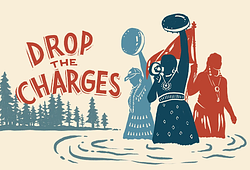
Seed funding from the Mastercard Foundation will help ensure that at least $45 million is invested in First Nations, Inuit and Métis teacher training
The Rideau Hall Foundation (RHF) is humbled to announce the Indigenous Teacher Education Initiative, with an aim to grow the number of First Nations, Inuit, and Métis teachers in the education system by 10,000, and to enable systemic changes in support of more meaningful and sustainable Indigenous teacher employment opportunities. Towards this goal, the RHF will be investing in excess of $45 million into community-driven and innovative strategies towards increasing the representation of First Nations, Inuit and Métis teachers in classrooms.
“The RHF is undertaking this work because the need for more Indigenous teachers is widespread in rural and urban communities from coast to coast to coast. While being transformational for students and Indigenous communities, First Nations, Inuit and Métis teachers are also essential to Canada’s reconciliation journey. We are working to ally and support pathways for new Indigenous teachers and towards a more representative workforce in K-12 educational systems,” says Bill Mintram, Director of Indigenous and Northern Relations at the RHF.
This initiative will be supported by several partners, including the Mastercard Foundation, which has made a significant lead philanthropic investment towards this initiative’s future impact.
“Our work at the Mastercard Foundation aims to support Indigenous youth on their journeys through education and on to meaningful livelihoods in accordance with their aspirations. This initiative with the Rideau Hall Foundation helps to advance both important objectives,” said Jennifer Brennan, Head, Canada Programs for the Mastercard Foundation. “We are committed to listening and acting in the direction of Indigenous youth and their communities. Enabling a new generation of Indigenous educators will contribute to building Indigenous education systems and create a hopeful future for Indigenous learners.”
This relationship-based initiative will be built with direction from a National Advisory Committee on Indigenous Teacher Education, to be co-chaired by nationally recognized leaders in Indigenous education and RHF Board Directors Roberta Jamieson, OC, and Dr. Mark Dockstator. The RHF looks forward to engaging in partnership with key delivery organizations and faculties of education across Canada towards building accessible, sustainable, and meaningful pathways for more First Nations, Inuit and Métis peoples into the teaching profession in the years ahead.
Please visit our website for more information.
About the Rideau Hall Foundation
The Rideau Hall Foundation is an independent national charitable organization established to mobilize ideas, people, and resources across the country to tap into our national spirit and help ignite our shared potential. Working towards a better Canada, the RHF celebrates what is best about Canada while working with partners to meaningfully improve lives and foster the conditions for more Canadians to succeed and thrive.
Learn more about the RHF at www.rhf-frh.ca and follow us on Twitter @RideauHallFdn.
About Mastercard Foundation
The Mastercard Foundation works with visionary organizations to enable young people in Africa and in Indigenous communities in Canada to access dignified and fulfilling work. It is one of the largest, private foundations in the world with a mission to advance learning and promote financial inclusion to create an inclusive and equitable world. The Foundation was created by Mastercard in 2006 as an independent organization with its own Board of Directors and management. For more information on the Foundation, please visit: www.mastercardfdn.org





















